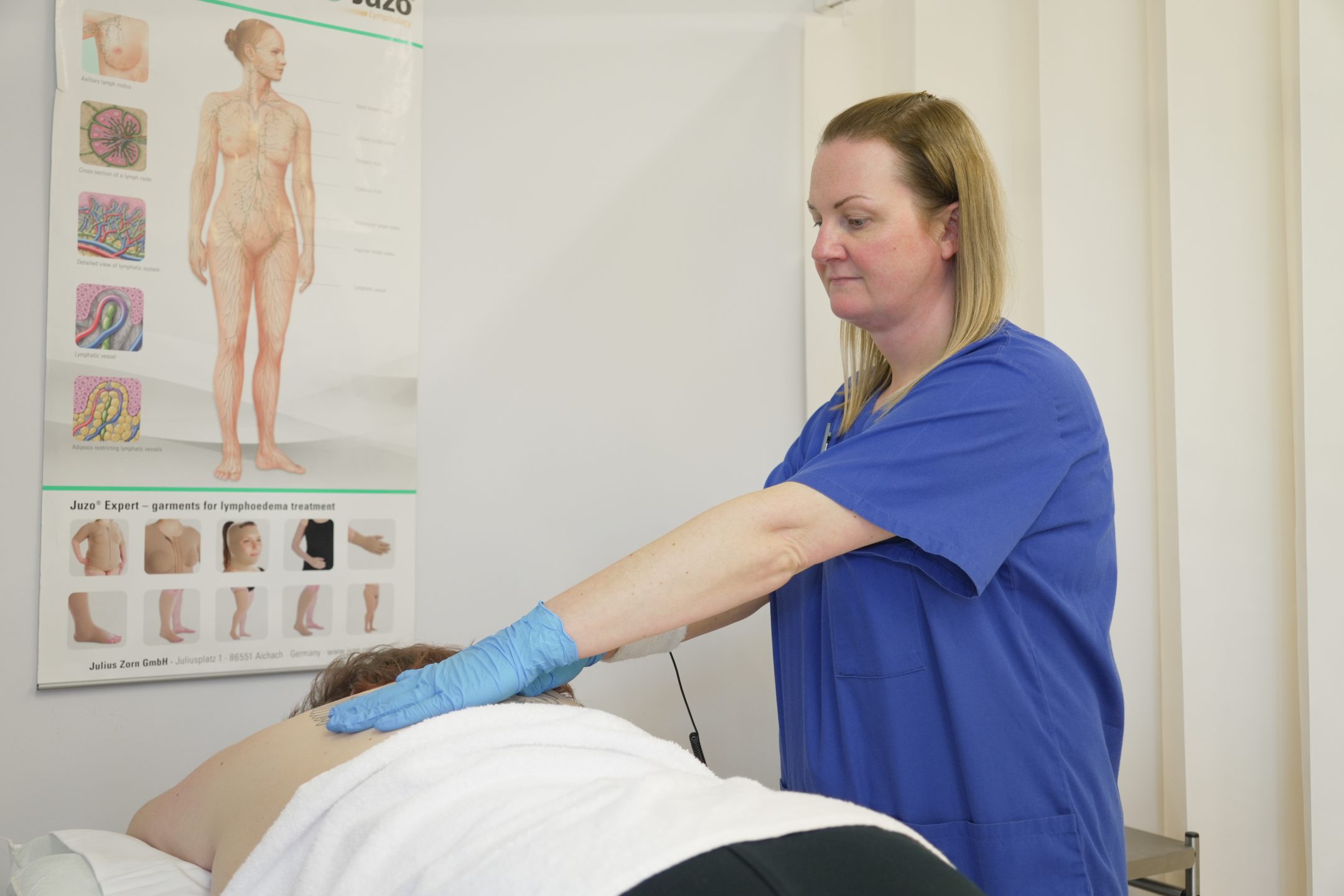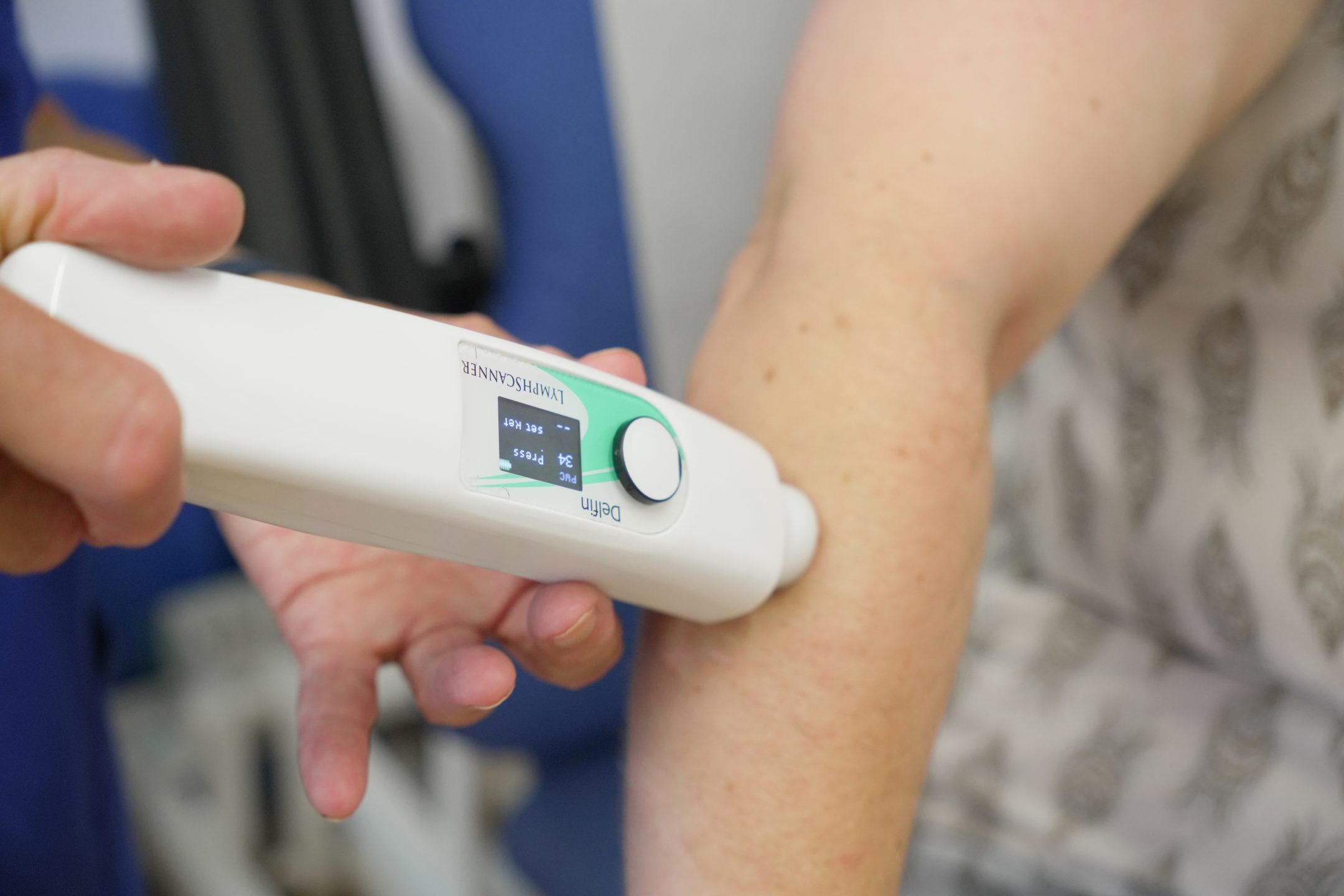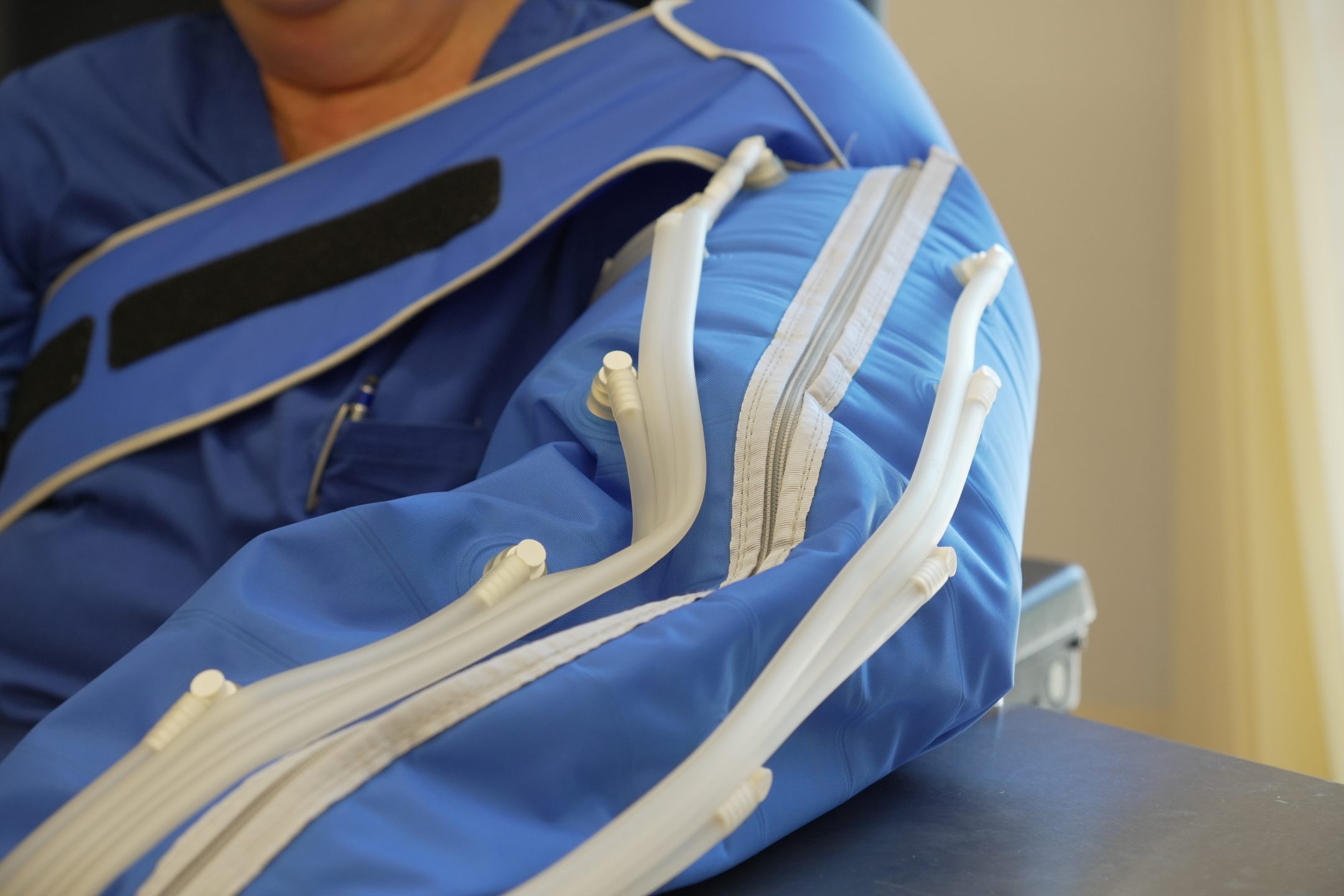Ali first joined St Margaret’s in 2002, initially working bank shifts on the In-Patient Unit while still based in haematology at Musgrove Park Hospital. Later that same year, she stepped into a job share role within the hospice’s lymphoedema service.
Lymphoedema, as Ali explains, “is a very under-recognised condition. Essentially, it’s a drainage problem that causes swelling in any part of the body.” She adds that it isn’t always linked to cancer. “It’s often to do with mobility, excess weight, venous problems, trauma – lots and lots of reasons. Or you can be born with a malfunctioning lymphatic system.”
The condition is managed in several ways, she says, including “compression, skin care, exercise, weight management.”
It’s the sort of job that’s a bit like Marmite. I always think you either love it or you hate it. And most people who join the team stay – hence my 23 years!”Ali
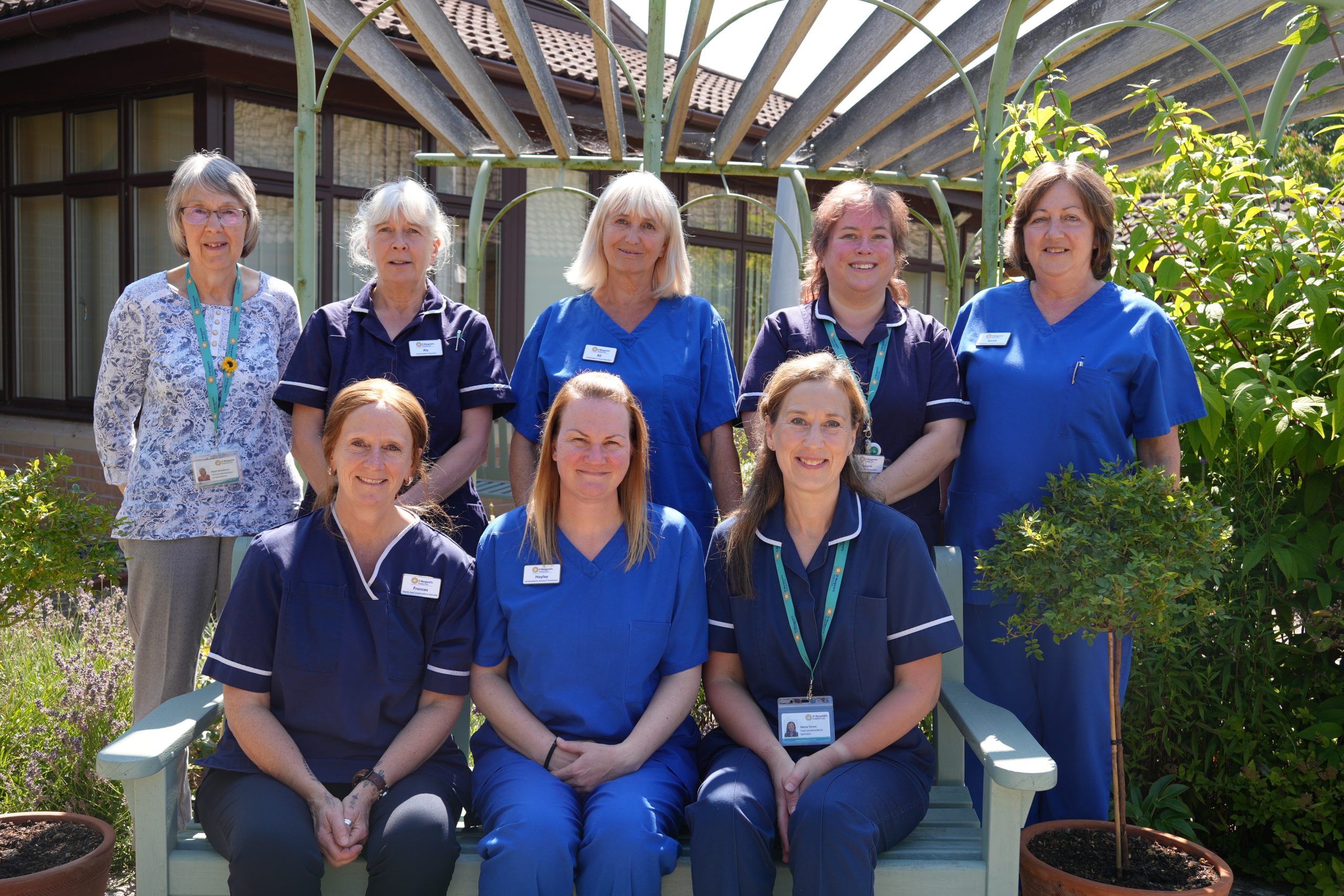
When she started, the lymphoedema service supported just 200 patients. Today, it cares for more than 2,000.
“We’ve worked an awful lot on awareness,” she says. “We’ve done some education with district nurses, GPs, specialist nurses at the hospital. So recognition of the condition has really grown, although we’re still getting referrals with people who’ve had it for years and years but still haven’t been referred.”
Ali has worked closely with commissioners over the years to grow and sustain the service. “Our commissioners have been incredibly supportive of our service. In other areas, many lymphoedema services have been cut back. But we’ve been very, very lucky with their support. Hopefully, we’re giving them good value for money.”
One of her proudest achievements was introducing a surveillance programme for breast cancer patients using bioimpedance technology. “I went to a conference in 2009 and heard about a machine that could detect lymphoedema before it becomes visible,” she recalls. “Early intervention really improves outcome, and they had some amazing results. So I came back full of enthusiasm, pitched it to our commissioners, and they funded a machine. We’ve had some excellent results over the years. We’re very lucky because they are very, very few NHS services that have this machine.”
Ali describes her time at the hospice as deeply fulfilling and says the people she’s worked with have made it all the more special.
The team is just brilliant. We all get on and we all have this passion for lymphoedema. I think we’re incredibly lucky – we wouldn’t have achieved half of what we’ve achieved without the team. And that includes our clinical admin support team, who are absolutely brilliant.”Ali
She also speaks with pride about the wider culture at St Margaret’s “Everyone’s approachable—from the top to the bottom. We’ve had several CEOs and directors over the years, but you always feel you can talk to them.”
She would highly recommend anyone join the team. “Do it! It’s a great job. It is such a lovely team here that is very friendly, incredibly supportive. Every new person that starts has a really good induction and there’s always someone to ask. It’s a great place to work.”
Over the years, Ali has been a passionate advocate not just for the condition, but for the people living with it. Listening, she says, is key. “Lymphoedema can be really debilitating and incredibly visible. People are used to being stared at. It affects their social lives and their mental health.”
I think that’s really the crux of the matter – if we just listen, that’s half the battle.”Ali
Ali also acknowledges how daunting it can be for patients referred to a hospice. “Because we’re based at the hospice, that can cause anxiety for some people, especially if the referral doesn’t explain it. People can think, ‘Why the hospice? Is something really wrong with me?’”
“But I think once they’ve come, 99% of them walk into reception and think, wow, this is just such a friendly atmosphere. They’re listened to and given time.”
That’s one of the luxuries we have working here – we can give them the time they need.”Ali
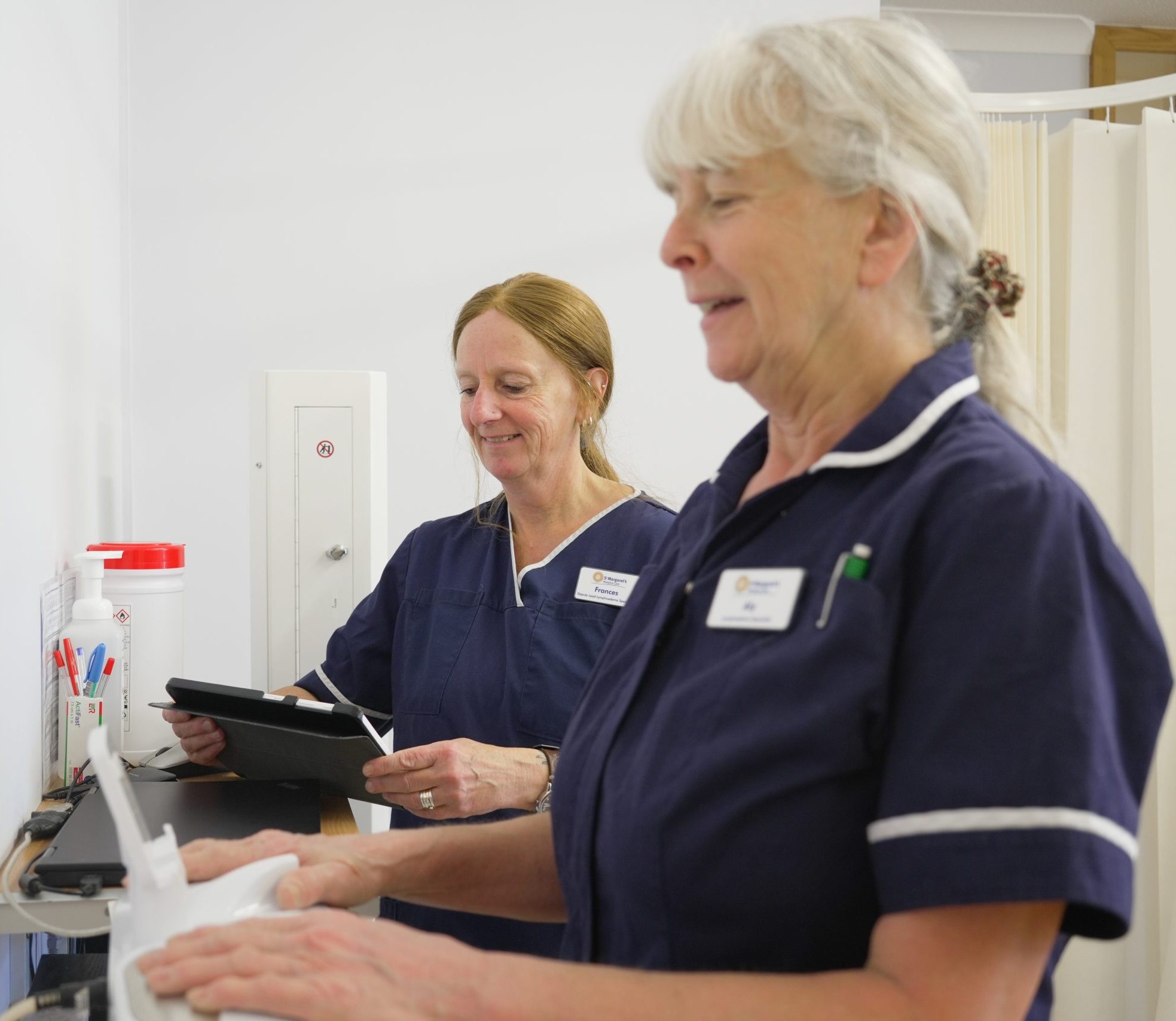
Among the many moments that stay with her, two patients in particular stand out.
One was a man referred during the London Olympics. “His wife was volunteering at Portland with the sailing, and they had a boat,” Ali remembers. “But he couldn’t get on and off it. But that was his goal—so we worked with him and the physio for three months. And we got him up that ladder and onto that boat. It was just a magical moment. He even took us all sailing to say thank you.”
The other was a ten-year-old girl with undiagnosed primary lymphoedema. “She had something wrong with her lymphatic system but it hadn’t been properly diagnosed. Her family were really anxious because they didn’t know what was causing it, and obviously it could have been a cancer-related one. Working with her and her family, and being able to explain that it was a primary lymphoedema and it was treatable, that was an incredible experience.”
Now retiring from her full-time role, Ali remains on the lymphoedema bank to support the team when needed.
“It’s quite a sad day, really,” she admits. “It’s just hitting me. I’ll miss it, but I’m not going far. I’ve made some real friends here, so it’s not really goodbye.”
Ali leaves behind a service transformed. 23 years of care, determination, and advocacy have changed the lives of thousands – and her passion continues to ripple through the team she helped to build.


